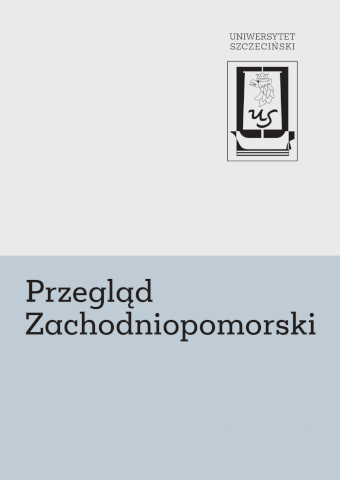| 1. | Printed sources: |
| 2. | Acta Pacis Westphalicae, Serie II, Abteilung B: Die französischen Korrespondenzen, Band 1: 1644, eds. U. Irsigler, K. Goronzy, Münster 1979. |
| 3. | Acta Pacis Westphalicae, Serie III, Abteilung D: Varia, Band 1: Stadtmünsterische Akten und Vermischtes, ed. H. Lahrkamp, Münster 1964. |
| 4. | Jenkinson C., A Collection of all the Treaties of Peace, Alliance and Commerce between Great Britain and Other Powers from the Treaty signed at Munster in 1648 to the Treaties signed at Paris in 1783, vol. 1: From 1648 to 1713, London 1785. |
| 5. | Pufendorf S., Sechs und Zwantzig Bücher der Schwedisch – und Deutschen Kriegs – Geschichte von König Gustav Adolfs Feldzuge in Deutschland an, biß zur Abdanckung |
| 6. | der Königin Christina, Frankfurt am Main–Leipzig 1688. |
| 7. | Literature: |
| 8. | Albrecht D., Maximilian I. von Bayern 1573–1651, München 1998. |
| 9. | Boadas Cabarrocas S., Camino a la Paz: el viaje de Saavedra Fajardo a Münster, in: Del verbo al espejo. Reflejos y miradas de la literatura hispánica, eds. P. Caballero-Alías, F.E. Chávez, B. Rippol Sintes, Barcelona 2011, pp. 67–78. |
| 10. | Bosbach F., Die Kosten des Westfälischen Friedenskongresses. Eine strukturgeschichtliche Untersuchung, Münster 1984. |
| 11. | Braubach M., Der Westfälische Friede, Münster 1948. |
| 12. | Bregnsbo M., Denmark and the Westphalian Peace, in: Der Westfälische Friede. Diplomatie – politische Zäsur – kulturelles Umfeld – Rezeptionsgeschichte, ed. H. Duchhardt, München 1998, pp. 361–367. |
| 13. | Cardim P., „Portuguese Rebels” at Münster. The Diplomatic Self – Fashioning in mid-17th Century European Politics, in: Der Westfälische Friede. Diplomatie – politische Zäsur – kulturelles Umfeld – Rezeptionsgeschichte, ed. H. Duchhardt, München 1998, pp. 292–333. |
| 14. | Demandt K.E., Geschichte des Landes Hessen, Kassel 1959. |
| 15. | Dickmann F., Der Westfälische Frieden, Münster 1972. |
| 16. | Droste H., Ein Diplomat zwischen Familieninteressen und Königsdienst. Johan Adler Salvius in Hamburg (1630–1650), in Nähe in der Ferne. Personale Verflechtung in den Außenbeziehungen der Frühen Neuzeit, eds. H. von Thiessen, Ch. Windler, Berlin 2005, pp. 87–104. |
| 17. | Egloffstein H. von und zu, Volmar Isaak, in: Allgemeine Deutsche Biographie, vol. 40, Leipzig 1896, pp. 263–269. |
| 18. | Endres R., Die Friedensziele der Ritterschaft, in: Der Westfälische Friede. Diplomatie – politische Zäsur – kulturelles Umfeld – Rezeptionsgeschichte, ed. H. Duchhardt, München 1998, pp. 565–578. |
| 19. | Fukala R., Dramat Europy. Wojna trzydziestoletnia (1618–1648) a kraje Korony Czeskiej, Wrocław 2015. |
| 20. | Gallati F., Die formelle Exemtion der Schweiz vom Deutschen Reich im Westfälischen Frieden, “Zeitschrift für Schweizerische Geschichte” 1948, no. 28, pp. 453–478. |
| 21. | Gauss J., Die Westfälische Mission Wettsteins im Widerstreit zwischen Reichstradition und Souveränitätslehre, “Zeitschrift für Schweizerische Geschichte” 1948, no. 28, pp. 177–190. |
| 22. | Groenveld S., Der Friede von Münster. Die niederländische Seite des Westfälischen Friedens, Bonn 1998. |
| 23. | Historia Hiszpanii, ed. M. Tuñon de Lara, J. Valdeón Baruque, A. Domínguez Ortiz, Kraków 1997. |
| 24. | Kamieński A., Rola francuskich subsydiów w polityce zagranicznej Brandenburgii-Prus w latach 1679–1685/86, in: Pecunia nervus belli. Z dziejów dyplomacji i stosunków międzynarodowych w XV–XVIII wieku, eds. M. Markiewicz, R. Skowron, F. Wolański Katowice 2016, pp. 66–82. |
| 25. | Leszczyński J., Piwarski K., Dzieje polityczne (od końca XVI w. do 1675), in: Historia Śląska, vol. 1: do roku 1763, part 3: od końca XVI w. do r. 1763, ed. K. Maleczyński, Wrocław 1963, pp. 303–403. |
| 26. | Lorenz G., Die dänische Friedensvermittlung beim Westfälischen Friedenskongreß, in: Forschungen und Quellen zur Geschichte des Dreißigjährigen Krieges, ed. K. Repgen, |
| 27. | Münster 1981, pp. 31–61. |
| 28. | Lundkvist S., Die schwedischen Friedenskonzeptionen und ihre Umsetzung in Osnabrück, in: Der Westfälische Friede. Diplomatie – politische Zäsur – kulturelles Umfeld – Rezeptionsgeschichte, ed. H. Duchhardt, München 1998, pp. 349–359. |
| 29. | Mecenseffy G., Habsburger im 17. Jahrhundert. Die Beziehungen der Höfe von Wien und Madrid während des Dreißigjährigen Krieges, in: Archiv für österreichische Geschichte, vol. 121, 1955, pp. 1–91. |
| 30. | Muller P.L., Pauw Adriaen, in: Allgemeine Deutsche Biographie, vol. 25, Leipzig 1887, pp. 301–302. |
| 31. | Neuhaus H., Das Reich in der frühen Neuzeit, “Enzyklöpedie deutsche Geschichte” 1997, 42. |
| 32. | Oliveira Marques de A.H., Historia Portugalii, vol. 1: do XVII w., Warszawa 1987. |
| 33. | Repgen K., Dreißigjähriger Krieg und Westfälische Friede. Studien und Quellen, pub. F. Bosbach and Ch. Kampmann, Paderborn–München–Wien 1998. |
| 34. | Rohrschneider M., Terrible es este Congreso: Wahrnehmungen der Fremde und Verhandlungsdispositionen im Spiegel der Berichte der spanischen Gesandten auf dem Westfälischen Friedenskongress, in: Wahrnehmungen des Fremden. Differenzerfahrungen von Diplomaten im 16. und 17. Jahrhundert, eds. M. Rohrschneider, A. Strohmeyer, Münster 2007, pp. 245–264. |
| 35. | Saring H., Matthias von Krockow, “Baltische Studien” NF 1940, 42. |
| 36. | Sánchez-Marcos F., The Future of Catalonia. A sujet brûlant at the Münster Negotiations, in: Der Westfälische Friede. Diplomatie – politische Zäsur – kulturelles Umfeld – Rezeptionsgeschichte, ed. H. Duchhardt, München 1998. |
| 37. | Serwański M., Francja wobec Polski w dobie wojny trzydziestoletniej (1618–1648), Poznań 1986. |
| 38. | Setton K.M., Venice, Austria, and the Turks in the Seventeenth Century, Philadelphia 1991, pp. 80–82. |
| 39. | Sonnino P., Prelude to the Fronde. The French Delegation at the Peace of Westphalia, in: Der Westfälische Friede. Diplomatie – politische Zäsur – kulturelles Umfeld – Rezeptionsgeschichte, ed. H. Duchhardt, München 1998, pp. 217–233. |
| 40. | Steiger H., Der Westfälische Frieden – Grundgesetz für Europa?, in: Der Westfälische Friede. Diplomatie – politische Zäsur – kulturelles Umfeld – Rezeptionsgeschichte, ed. H. Duchhardt, München 1998, pp. 33–80.Teske G., Verhandlungen zum Westfälischen Frieden außerhalb der Kongreßstädte Münster und Osnabrück, “Westfälische Zeitschrift” vol. 147, 1997, pp. 63–92. |
| 41. | Wachowiak B. with A. Kamieński, Dzieje Brandenburgii-Prus u progu czasów nowożytnych (1500–1701), Poznań 2001. |
| 42. | Wąs G., Dzieje Śląska od 1526 do 1806 roku, in: Historia Śląska, ed. M. Czapliński, Wrocław 2007, pp. 122–275. |
| 43. | Westphal S., Der Westfälische Frieden, München 2015. |
| 44. | Wilson P.H., Wojna trzydziestoletnia 1618–1648. Tragedia Europy, Oświęcim 2017. |







